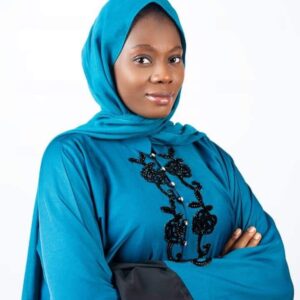Women’s participation in governance is crucial for achieving gender equality and inclusive decision-making in Nigeria. Despite constitutional provisions and international agreements like the Convention on the Elimination of All Forms of Discrimination Against Women (CEDAW), women remain underrepresented in leadership roles.
Constitutional provisions supporting women’s participation provide a framework for promoting women’s participation in governance. Specifically Section 42 which guarantees freedom from discrimination on the basis of sex, ethnic origin, or religion; Section 17(2)(a) which promotes social justice and equality, emphasizing the need for government policies to be harnessed to promote national prosperity and an efficient, dynamic and self-reliant nation and Section 14(3) which emphasizes the importance of participation by the people in government and decision-making processes.
In pre-colonial Nigeria, women played significant roles in various societies. For instance, the Yoruba had female chiefs known as Iyalode, who were influential in governance and trade. Similarly, Igbo women organized themselves into powerful groups like the Umuada, contributing to social and political decision-making. Queen Njinga of Ndongo and Matamba, is another notable example of a powerful female leader.
According to the Policy and Legal Advocacy Centre, Nigeria has a policy environment that would appear to support gender equality as successive governments in the country have established institutional structures for the development and implementation of gender policies, coordinated by the Federal Ministry of Women Affairs with desk officers for each sector, and corresponding Women Affairs Officers in each government ministry.
There seems to be a widespread appreciation of gender issues as both government and non-governmental organizations emphasize gender mainstreaming in their activities. Although the prospect for increased representation of Nigerian women in political leadership appears strong, a look at the data on the political representation of women in Nigeria indicate that gender gains of the last decade have not reflected in the level of women’s representation in political leadership.
To fast-track progress towards gender parity in political representation, a coordinated, multi-stakeholder approach is needed to dismantle systemic barriers and drive meaningful reform. Comparative examples from countries that have successfully increased women’s political representation provide valuable lessons.
For Nigeria to bridge its gender gap in political leadership, several policy shifts are required. Firstly, electoral reforms must embed enforceable gender quotas. This strategy has been powerfully demonstrated in Rwanda and Sweden. Following the 1994 genocide, Rwanda enacted constitutional reforms that introduced mandatory gender quotas reserving at least 30% of parliamentary seats for women. In addition, all political parties were mandated to integrate gender-sensitive policies, including quotas for female candidates. Today, Rwanda stands as the global leader in women’s political representation, with women occupying over 60% of parliamentary seats. This increase has not only diversified political representation but has also influenced legislative priorities leading to the passage of laws that strengthen family welfare, education access, and protections against gender-based violence.
Sweden, on the other hand, implements a proportional representation electoral system combined with voluntary party quotas. Its leading political parties, particularly the Social Democratic Party, have adopted internal policies that ensure gender-balanced candidate lists. As a result, nearly 47% of Sweden’s parliament is made up of women, enabling inclusive, consensus-driven governance. Nigeria can draw from these models by institutionalizing gender quotas through legislative reform. The Independent National Electoral Commission (INEC), in collaboration with the National Assembly, should establish legal provisions that compel political parties to nominate no fewer than 35% women as candidates across all elective offices. These quotas should be complemented by electoral incentives and legal penalties to ensure compliance.
Secondly, internal reform of political party structures is essential to improving women’s access to leadership. Political parties are the gatekeepers of electoral opportunities, and unless they evolve internally, external reforms will remain ineffective. In Sweden, for example, the Social Democratic Party restructured its internal governance to embed gender inclusivity. This included adopting voluntary quotas, empowering women’s wings with dedicated funding, and instituting rotational leadership mechanisms that guaranteed women’s access to influential roles. These reforms were instrumental in preparing women not only to contest elections but to emerge as party leaders and national policymakers.
For Nigeria, similar reforms should begin with revising party constitutions to establish minimum gender inclusion thresholds. Political parties should create well-resourced and autonomous women’s wings with influence over decision-making and candidate selection. Leadership development programs, internal mentorship initiatives, and institutional support for female aspirants must become core elements of party policy. INEC, through its political party monitoring unit, should also develop gender inclusion benchmarks and annual assessments to track compliance and progress.
Thirdly, civil society organizations (CSOs) and the media must play a more assertive role in advocating for gender-responsive governance. The case of France provides an instructive model. The country’s Parity Law, which mandates political parties to submit gender-balanced electoral lists, owes its success to years of strategic advocacy by feminist groups, academics, and civil society coalitions. These organizations mobilized public opinion, utilized media platforms to amplify demands, and worked closely with reform-minded legislators. Following the law’s passage in 2000, compliance monitoring by civil society continued, and political parties were held publicly accountable for their level of gender inclusion.
Nigeria’s civil society landscape is robust and capable of similar mobilization. CSOs should strengthen advocacy by spotlighting successful female political leaders, confronting harmful stereotypes, and promoting accountability through scorecards that measure political parties’ gender representation performance. The media must also be engaged as a strategic partner in disseminating balanced coverage, producing gender-sensitive political analysis, and using storytelling to challenge the narrative that leadership is inherently male. Grassroots engagement through community radio, traditional institutions, and youth-led campaigns can significantly shift public perception and voter behavior in favor of female candidates.
While constitutional guarantees and policy frameworks exist in Nigeria, the transformation of political representation requires enforcement, political will, and citizen engagement. A deliberate and coordinated approach involving government institutions, political parties, civil society, and the media is critical.
To accelerate gender equity in Nigerian governance, electoral reforms must embed enforceable gender quotas, political parties must adopt inclusive internal structures, and public institutions must be held accountable to gender-responsive legislation. Only then can Nigeria translate its commitments into meaningful representation and democratic progress.

Ladidi Abdulmumin
Ladidi Abdulmumin is a data analyst and Google Women Techmakers Ambassador, passionate about using data for sustainable development and digital inclusion. She is a policy impact fellow at Cheetahs Policy Institute

